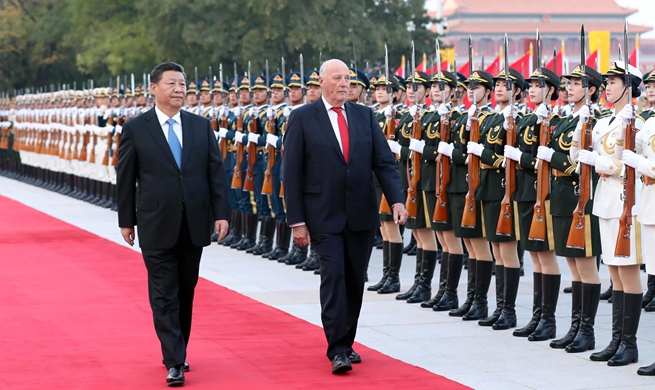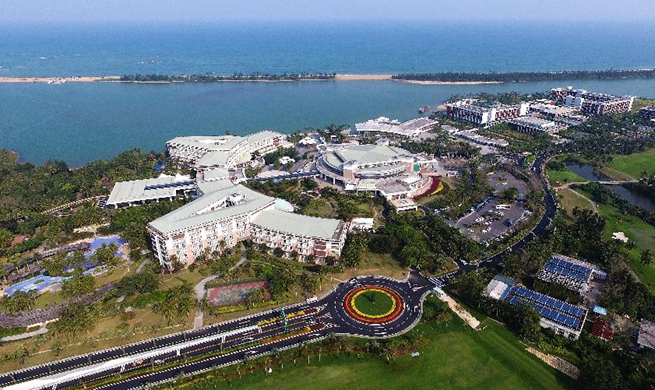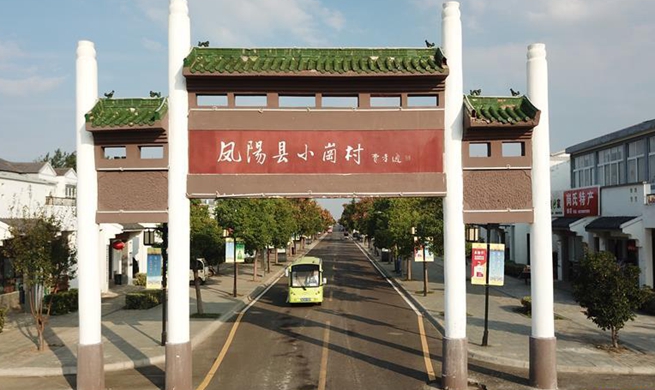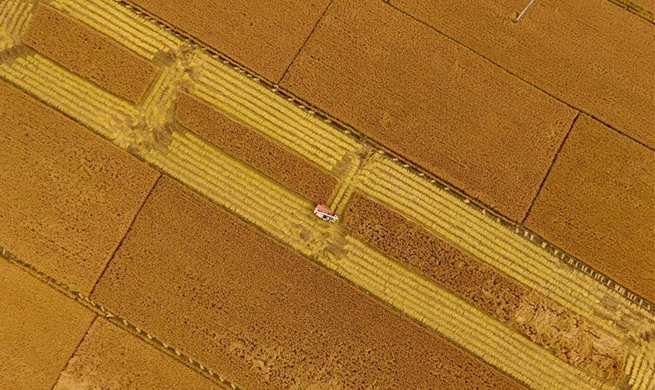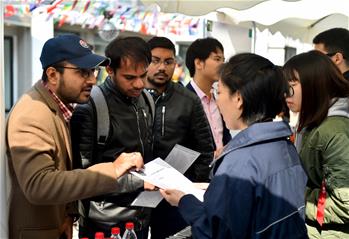HAVANA, Oct. 16 (Xinhua) -- The Food and Agriculture Organization of the United Nations (FAO) on Tuesday acknowledged that hunger is not a problem in Cuba due to government policies that guarantee food security for the entire population.
In an event on the occasion of World Food Day which is celebrated every year around the world on Oct. 16, Marcelo Resende, FAO representative in Cuba, indicated this topic is a permanent concern in the governmental and parliamentary agenda.
"Cuba strengthens its food security and advances on the path towards sovereignty over these issues," the official said.
Resende indicated that Havana along with FAO's support developed a "Municipal Self-Supply Plan," which is considered a good example and an innovative reality in Latin America and the Caribbean.
"This plan promotes nutrition security arrangements to the extent that agricultural production links a goal of 30 pounds of food per person per month of all basic products in order to have a healthy diet," he added.
Also, he said, it encourages greater productive support to guarantee the population access to that diet.
Since the 1960s, Cuba has implemented a system of subsidies for various food items such as rice, grains, some proteins, vegetables and roots, milk for children and infants, among others.
The so-called Ration Book allows the entire Cuban population access to basic foods for prices that do not amount to more than 1 U.S. dollar a month for this basic basket.
The FAO official said the island also prioritizes surveillance and resilience to mitigate the effects of climate change and extreme weather conditions, which strain food production worldwide.
"The preparation and response to the recent hurricane Michael demonstrates, once again, the importance that Cuba gives to this issue where food was guaranteed and supplied to the affected population," he added.
In addition to recognizing Cuban achievements in food, Resende called for collective action to generate the changes needed to build a world free of hunger and all forms of malnutrition.
"The route to eradicate hunger points to the solution of social inequalities, due to the concentration of wealth in a small minority. Eliminating hunger from our planet implies, necessarily, eliminating the gaps of inequality," he said.
According to the data provided by the most recent report on the State of Food Security and Nutrition in the World (SOFI) 2018, it is noted that for the third consecutive year global hunger statistics increased.
According to the report, currently about 821 million people suffer from hunger, of which 39.3 million live in Latin America and the Caribbean.










